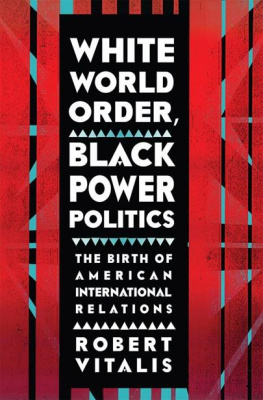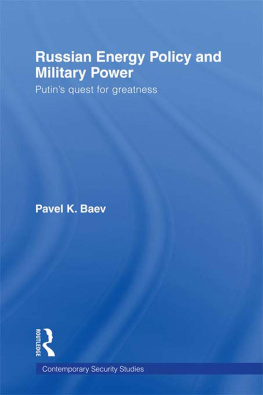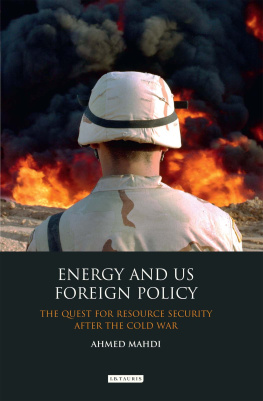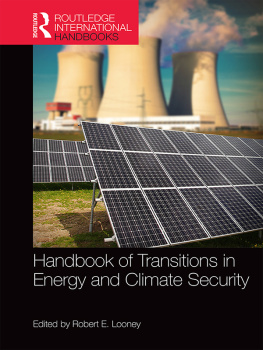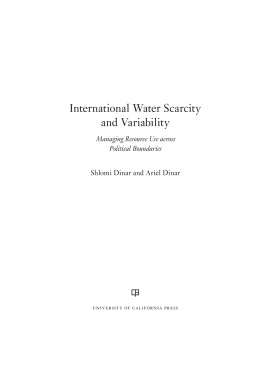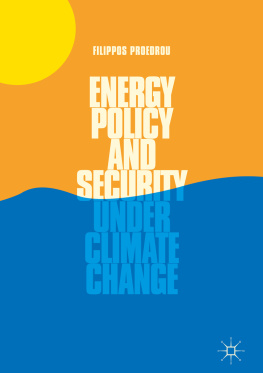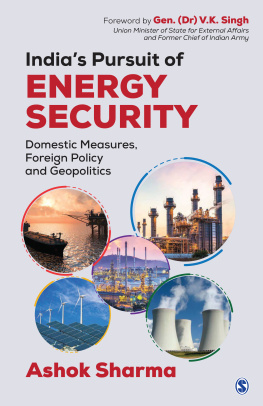Robert Vitalis - Oilcraft: The Myths of Scarcity and Security That Haunt U.S. Energy Policy
Here you can read online Robert Vitalis - Oilcraft: The Myths of Scarcity and Security That Haunt U.S. Energy Policy full text of the book (entire story) in english for free. Download pdf and epub, get meaning, cover and reviews about this ebook. year: 2020, publisher: Stanford University Press, genre: Politics. Description of the work, (preface) as well as reviews are available. Best literature library LitArk.com created for fans of good reading and offers a wide selection of genres:
Romance novel
Science fiction
Adventure
Detective
Science
History
Home and family
Prose
Art
Politics
Computer
Non-fiction
Religion
Business
Children
Humor
Choose a favorite category and find really read worthwhile books. Enjoy immersion in the world of imagination, feel the emotions of the characters or learn something new for yourself, make an fascinating discovery.

- Book:Oilcraft: The Myths of Scarcity and Security That Haunt U.S. Energy Policy
- Author:
- Publisher:Stanford University Press
- Genre:
- Year:2020
- Rating:3 / 5
- Favourites:Add to favourites
- Your mark:
- 60
- 1
- 2
- 3
- 4
- 5
Oilcraft: The Myths of Scarcity and Security That Haunt U.S. Energy Policy: summary, description and annotation
We offer to read an annotation, description, summary or preface (depends on what the author of the book "Oilcraft: The Myths of Scarcity and Security That Haunt U.S. Energy Policy" wrote himself). If you haven't found the necessary information about the book — write in the comments, we will try to find it.
Oilcraft: The Myths of Scarcity and Security That Haunt U.S. Energy Policy — read online for free the complete book (whole text) full work
Below is the text of the book, divided by pages. System saving the place of the last page read, allows you to conveniently read the book "Oilcraft: The Myths of Scarcity and Security That Haunt U.S. Energy Policy" online for free, without having to search again every time where you left off. Put a bookmark, and you can go to the page where you finished reading at any time.
Font size:
Interval:
Bookmark:

OILCRAFT
The Myths of Scarcity and Security That Haunt U.S. Energy Policy
ROBERT VITALIS
STANFORD UNIVERSITY PRESS
Stanford, California
STANFORD UNIVERSITY PRESS
Stanford, California
2020 by the Board of Trustees of the Leland Stanford Junior University. All rights reserved.
No part of this book may be reproduced or transmitted in any form or by any means, electronic or mechanical, including photocopying and recording, or in any information storage or retrieval system without the prior written permission of Stanford University Press.
Printed in the United States of America on acid-free, archival-quality paper
Library of Congress Cataloging-in-Publication Data is available upon request.
ISBN 978-1-5036-0090-4 (cloth)
ISBN 978-1-5036-1234-1 (electronic)
Cover design: Kevin Barrett Kane
Cover photograph: Daniel Olah
Text design: Kevin Barrett Kane
Typeset by Newgen in 11/14 Granjon
For Marilyn Young (d. February 19, 2017) and Ellis Goldberg (d. September 21, 2019)
CONTENTS
OPENING
There is no reason we should end up going to war over resources, but that insight really becomes helpful only when the public, opinion leaders, and policymakers understand it.
John P. Holdren, foreword to Ronnie Lipschutz, When Nations Clash
IN THE RUN-UP to the 2003 U.S. invasion of Iraq, antiwar demonstrators marched under many different banners. No War and Not in My Name were prominent. But so were No War for Oil and its twin, No Blood for Oil. The George W. Bush administration and its supporters in the major media, the academy, and think tanks tried hard to disabuse opponents of the idea that the United States was focused on Iraqs energy resources. It has nothing to do with oil, literally nothing to do with oil, insisted Defense Secretary Donald Rumsfeld. He and others emphasized that the war aimed to prevent Iraqs dictator from using (it turns out nonexistent) weapons of mass destruction, free Iraqis from tyranny, and permit democracy to bloom on the Euphrates.
Opponents werent buying it. Hadnt the government lied or at least cooked the intelligence about Iraqs chemical weapons capability? Democracy promotion was just a facade, since Bush and his advisers appeared to care little about freedom a few hundred
Various journalists and bloggers could crow we told you so a few years later, when Alan Greenspan, the acolyte of Ayn Rand who headed the U.S. Federal Reserve between 1987 and 2006, came out with a memoir. Newspaper and television reports all led with the same one line from a book of more than five hundred pages: I am saddened that it is politically inconvenient to acknowledge what everyone knows: the Iraq war is largely about oil.
The fact is that proof of the kind that Greenspan was thought to be providinginsight into the true but unstated objective of the president and his closest advisershas never really mattered. The point of this book is to demonstrate how such seemingly unshakeable beliefs are nonetheless false.
First, and simply, there is the idea that the Bush administration launched a war to get or steal Iraqi oil, but nothing remotely like that ever happened. On the day after his inauguration, at the headquarters of the Central Intelligence Agency, President Donald J. Trump declared that we should have taken the oil and that maybe well have another chance.
Assume that something different is meant by stealing the oil: that the output of Iraqi fields would come under direct ownership of the U.S. government, which would be unprecedented, to say the least. The U.S. government does not produce and refine oil on its own, and the last time such a plan was floated (and quickly defeated) was more than seventy-five years ago, during World War II. All civilian and military agencies purchase what they require on the market like any private business or trader. Then perhaps steal the oil is shorthand for the idea that the Bush administration wanted U.S. multinationals (big oil) to enter the Iraqi oil business directly or was acting as the companies surrogate. If so, then there was again no need to go to war. The government merely had to lift the sanctions that prevented U.S. companies from contracting with the Iraqi oil ministry, as is conventional in other oil-producing countries around the world, and as they do now in Iraq. Keep one more thing in mind, however. The putative national identity of the large integrated companies that sell their advanced technology expertise to and buy oil from Iraqi agenciesExxon Mobil and its rivalstells us little about where the oil is destined once it leaves the ground. That is, the U.S., Chinese, Indian, and European firms, whether privately held or government owned, all sell their refined products to many different buyers across the globe.
Its important to hold on to this last fact while turning to a more sophisticated contemporary geopolitics, from which vantage point the 2003 Iraq War appeared to confirm that the United States was locked in struggle with China and other powers for control of the dwindling world supply of natural resources, oil chief among them. The longtime Nation magazine defense correspondent Michael Klare wrote four books and produced one documentary between 2001 and 2011 on the topica windfall of sorts. Take Blood and Oil (2004). Klare argued there that Americas dependency onor
Well-known intellectual entrepreneurs shared the moral high ground with him, including the sustainable development champion Jeffrey Sachs, soft energy path pioneer Amory Lovins, and environmental activist Bill McKibben. Alongside them, one found a host of critics of the American empire, convinced that oil is the prize over which states have fought numerous wars in the past, with more likely to follow.
A veneer of references, footnotes, and quotations mask what is in essence an ideological construction, a set of deeply held, pervasive
A key feature of the mental terrain of oilcraft is what the environmental engineer turned historian Roger Stern calls oil scarcity ideology. Stern argues that moments of perceived decline in the worlds known oil reservesa false conclusion for which the only real evidence is that prices are risinghave repeatedly led to aggressive action. Some fear that rival powers are conspiring to gain exclusive control of foreign sources of supply, others that producing countries such as Iraq under Saddam Hussein or a less friendly Saudi monarchy will choose not to sell their oil. I am more cautious than he is in relying on the many histories that take for granted that states have repeatedly acted on these grounds. At times policy makers may have; at times not. The problem is that the historians, as believers themselves in the truth of the proposition that oil is power, often fail their disciplines norm of due diligence in judging evidence and questioning assumptions. Many examples are in the chapters to follow.
Have successive U.S. administrations, from Woodrow Wilson to Donald Trump, acted (or are ready to act) on this belief, occupied countries, coddled dictators, threatened allies, overthrown governments, and even gone to war for oil?
For all the professors, investigative journalists, and best-selling historians turned entrepreneurs who have been telling versions of the oil-is-power story since the so-called energy crisis of the 1970s, the facts seem too obvious to question. Oil answers the need of those looking for the real or material objectives behind the governments rhetoric and what professors of international relations refer to as strategic rationales. It is why documents unearthed from the archives are taken at face value rather than interrogated, treated as the equivalent of actual policy decisions or, worse, as previously stated, the prime directive followed by every post-1945 administration. The common denominator among otherwise antagonistic perspectivesfrom right-wing grand strategists to left-wing critics of capitalist imperialismis a belief that oil as lifeblood or weapon or prize is different or unique or exceptional in comparison to the myriad other raw materials that are mined or harvested and traded on the world market. But theyre wrong.
Font size:
Interval:
Bookmark:
Similar books «Oilcraft: The Myths of Scarcity and Security That Haunt U.S. Energy Policy»
Look at similar books to Oilcraft: The Myths of Scarcity and Security That Haunt U.S. Energy Policy. We have selected literature similar in name and meaning in the hope of providing readers with more options to find new, interesting, not yet read works.
Discussion, reviews of the book Oilcraft: The Myths of Scarcity and Security That Haunt U.S. Energy Policy and just readers' own opinions. Leave your comments, write what you think about the work, its meaning or the main characters. Specify what exactly you liked and what you didn't like, and why you think so.

